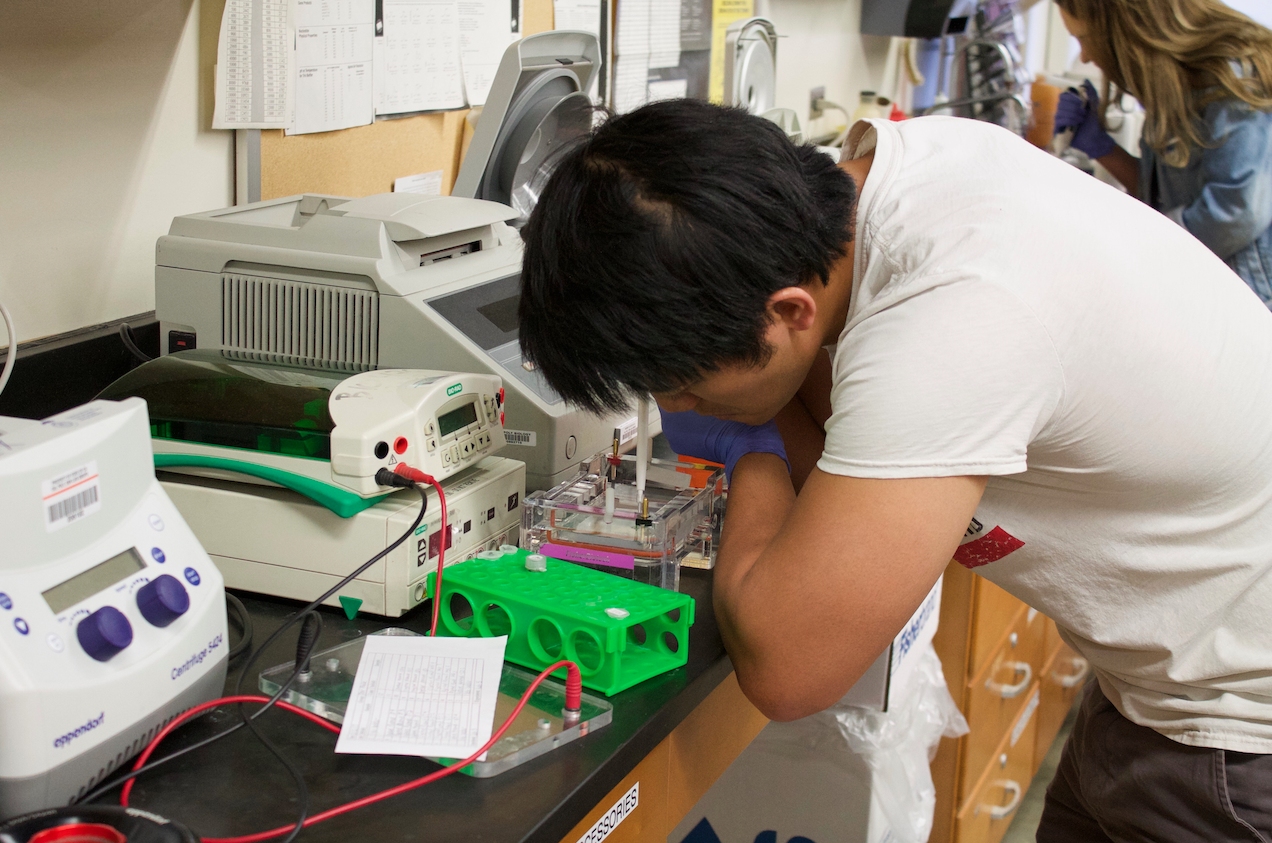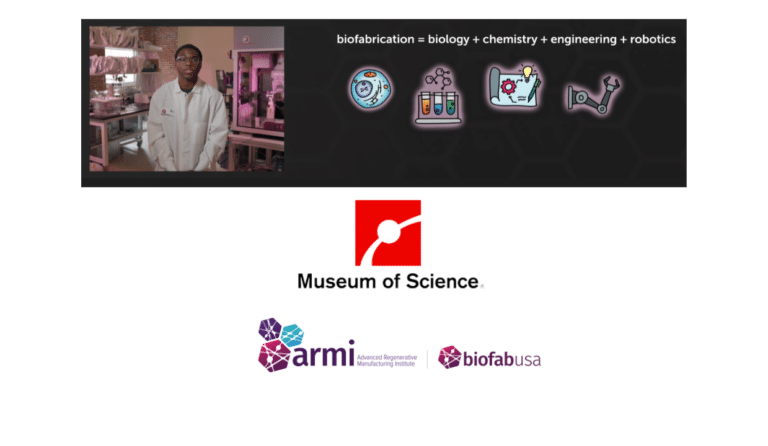Over the last 10 years, Cal Poly has provided well-trained graduates for the Regenerative Medicine Industry through a Regenerative Medicine Interdisciplinary Program that integrates students and faculty from Biomedical Engineering, Biological Sciences, and Animal Science.
The interdisciplinary program involves one year of hands-on, laboratory-based coursework followed by a 9-month internship at a biotech company. This training prepares graduates of the MS Program for careers in research and development, biologics manufacturing, and translational research. It also carries on the Cal Poly tradition of graduating day-one ready professionals for the burgeoning Regenerative Medicine/Biotech Industry.

“The Program grew organically, and started when faculty from three different colleges across the university came together with a shared interest- tissue regeneration & repair, developmental biology, and tissue engineering. They are our passion and focus in terms of our research and teaching activities. Additionally, like many others, we believe that Regenerative Medicine is the future of medicine, and we think we can help make that future a reality,” said Trevor Cardinal, PhD, Professor of Biomedical Engineering.
Cal Poly, located in San Luis Obispo, established as a California Polytechnic School in 1901 by Governor Henry T. Gage after signing the California Polytechnic School Bill, which occurred after a successful campaign by journalist Myron Angel. The polytechnic school held its first classes on October 1, 1903 with 20 students, offering secondary level courses of study, which took three years to complete. Cal Poly is a public university and one of two polytechnics in the California State University system.
“We have already distinguished ourselves as one of the foremost educators in the country of engineers for the medical device sector- graduating day-1 ready professionals who make immediate impacts in the field. Now, we want to do the same for cell and tissue-based therapies. Given the additional complexities of making biologic ‘devices’, we initiated the Program through collaboration with biologists and animal scientists,” Dr. Cardinal continued.
“We learned about ARMI from discussions with colleagues such as Tom Skalak, PhD (The Clara and Joe Tsai Foundation) and Ben Shepherd, PhD, Organovo,” he said, adding, “We hope that ARMI can create a community that enables us to connect our talented students with industry members beyond California for student projects, internships, and eventual employment.”
Regenerative Medicine is an inherently interdisciplinary field, relying on the expertise of biologists, engineers, chemists, and others to bring regenerative therapies into clinical practice. Therefore, faculty from Biomedical Engineering, Biological Sciences, and Animal Science – drawing on complementary skills to build a comprehensive training program founded the Cal Poly program. To strengthen the interdisciplinary nature of the program, Cal Poly has matriculated students from a broad range of undergraduate degrees. In addition to those listed, students have also come from biochemistry, chemical engineering, environmental sciences, among others.

“Cell and biologic therapies represent the future of medicine. After years of promise, our field is beginning to realize its potential, as evidenced by the growth in the biotech sector, and the large number of clinical trials currently on-going for cell and tissue engineered therapies in the US,” said Dr. Cardinal, adding, “We foresee in five years’ time a routine industrial scale production of cell-based therapies and then in 10 years the industrial scale production of tissue-based therapies.”
He continued, “The current manual nature of cell and tissue production is inherently variable, expensive, and labor intensive, and the cost of cell and tissue production limits the possibilities of industrial scale expansion of manufacturing.”
“At a rate of ~10 students per year, we are helping to deliver the work force needed for this nascent industry. As the industry grows, we hope to expand our Program and share the processes we have employed for the last 10-years with other institutions hoping to develop a curriculum for effectively educating the workforce for cell and tissue-based therapies,” Dr. Cardinal concluded, “We are excited to partner with ARMI members to develop mutually-beneficial relationships in which students get projects, internships, and jobs while companies get to advance their technology, market their brand, and acquire talent that is day-1 ready.”






